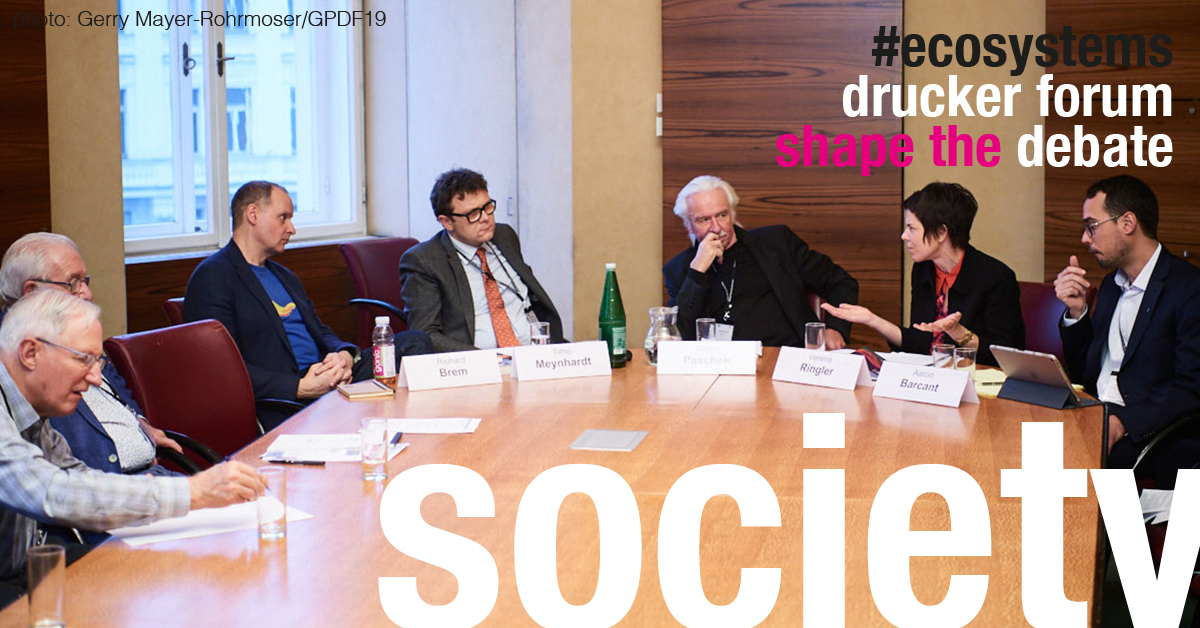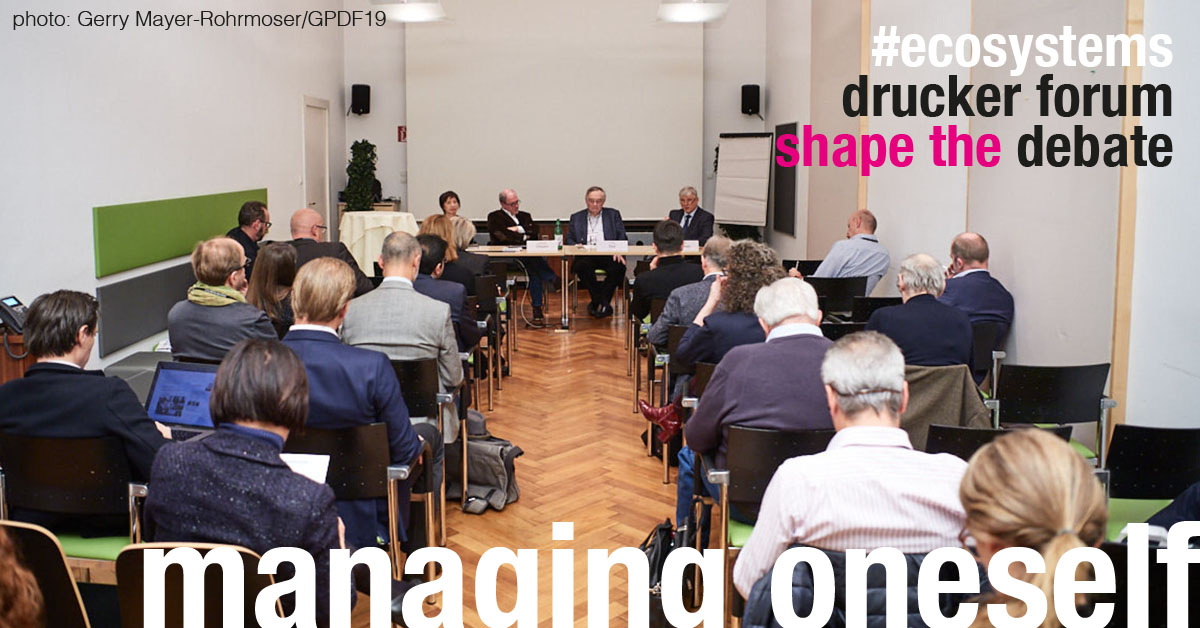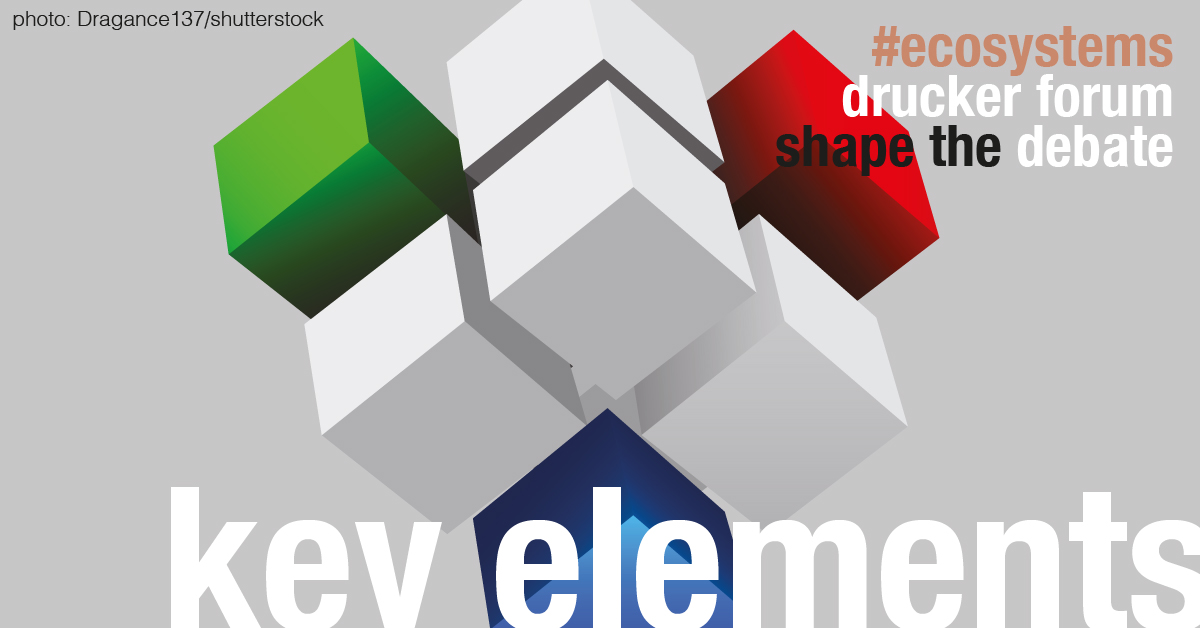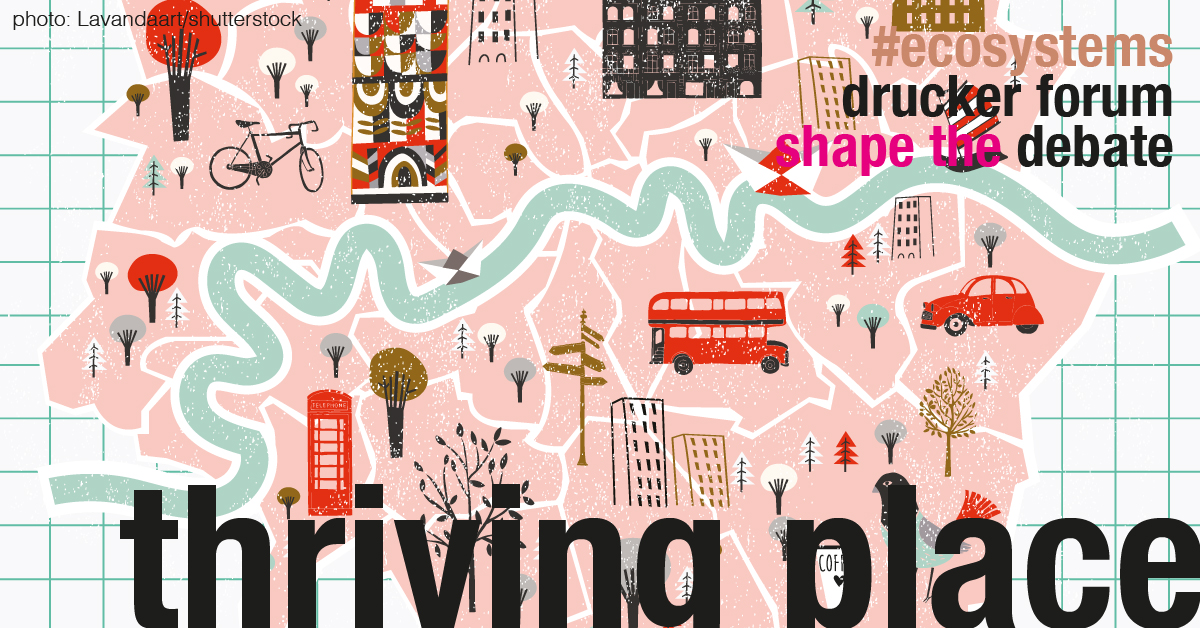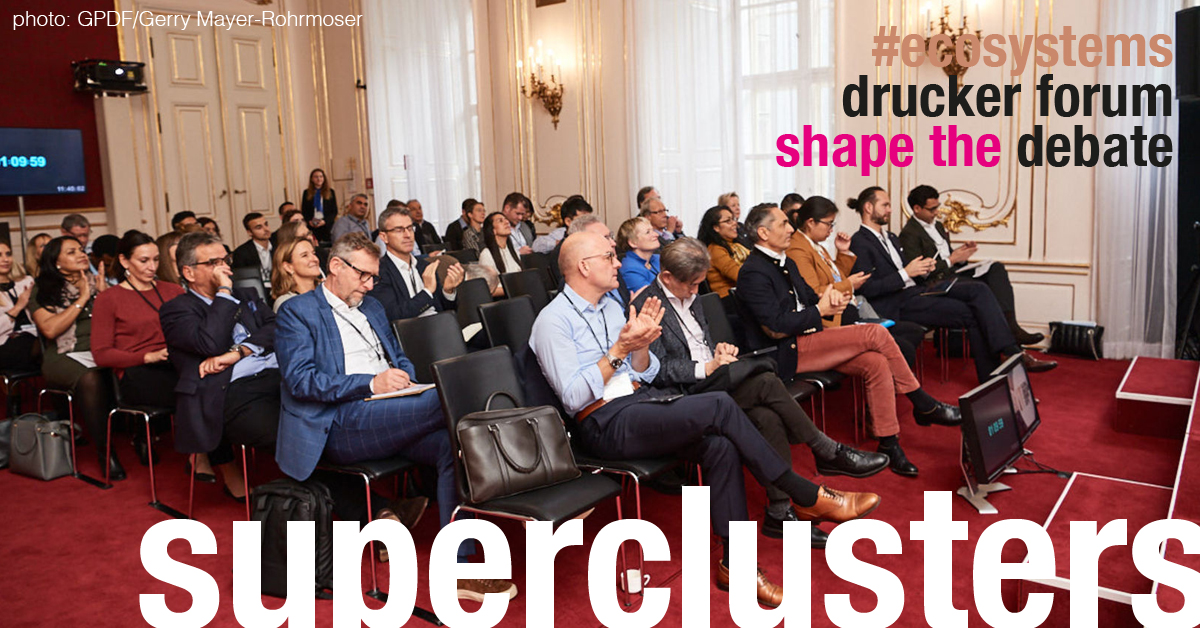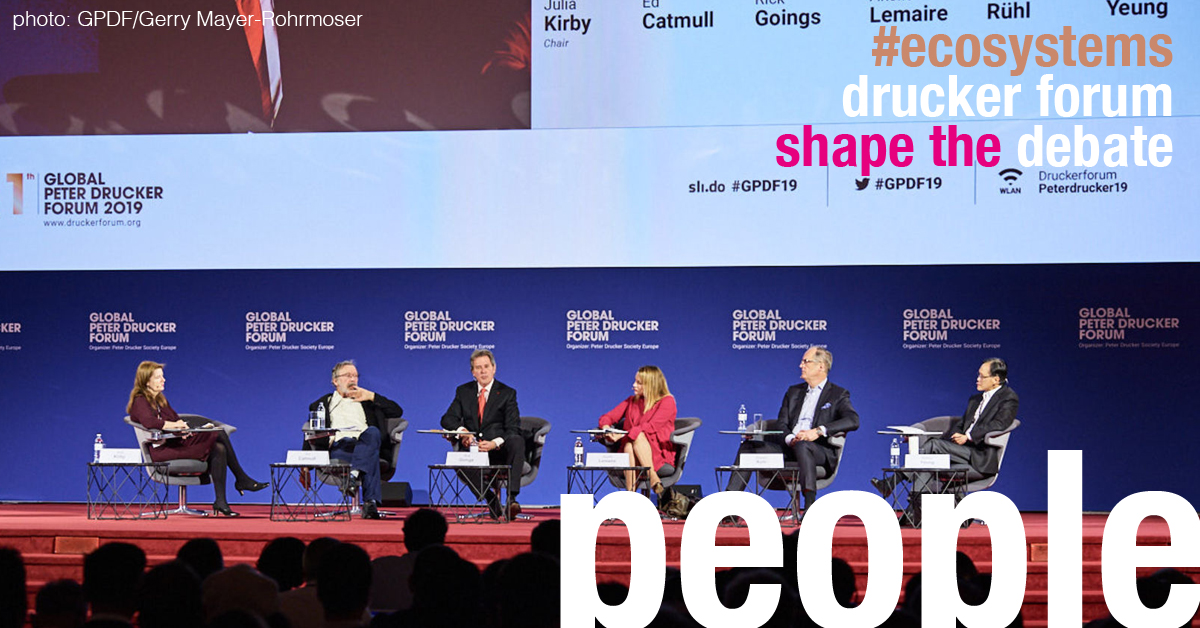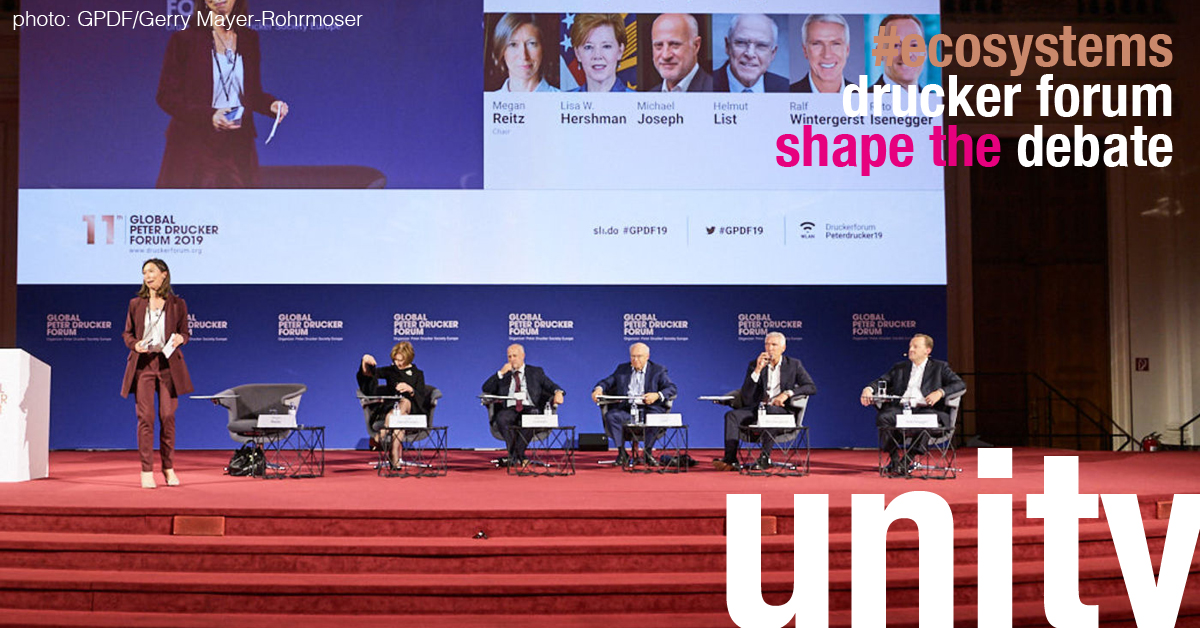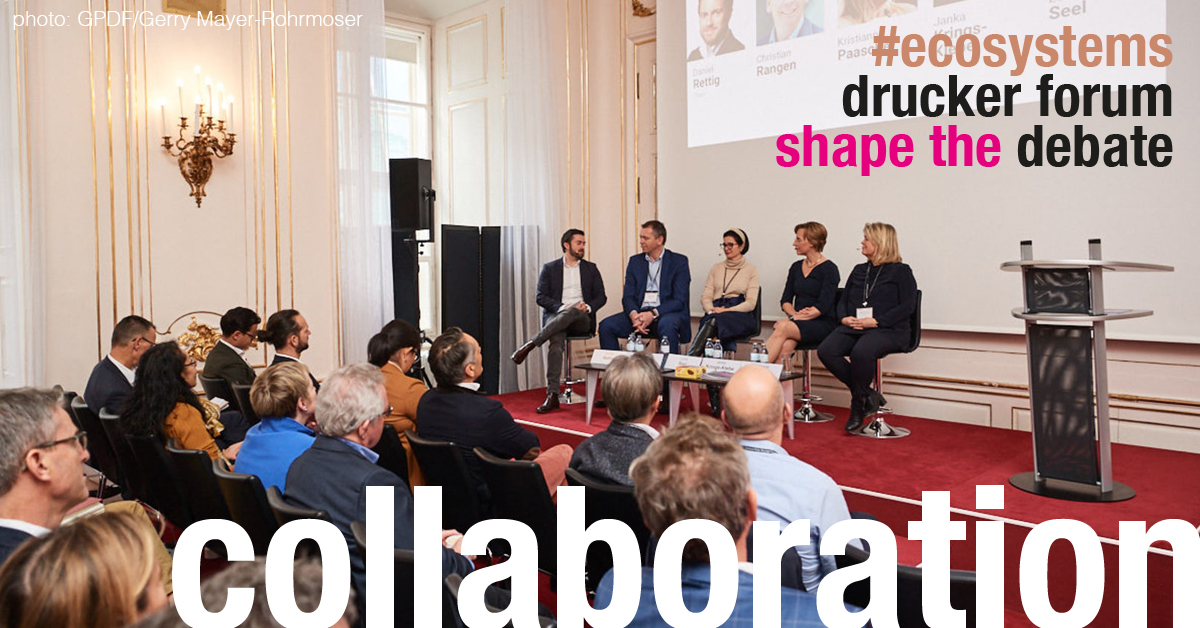Panelists: Chair: Richard Brem, Senior Advisor, Peter Drucker Society of Europe, Peter Paschek, Management Consultant, Timo Meynhardt, Professor for Business Psychology and Leadership, HHL Leipzig Graduate School of Management, Verena Ringler, Curator, Erste Foundation Aaron Barcant, Independent Researcher, Karl Polanyi Institute of Political Economy The round table began with Richard Brem introducing the panelists and each of them summarizing why Peter Drucker’s work and vision mattered to them. Drucker’s vision Drucker always argued that one’s worldview mattered to one’s understanding of one’s role and contribution in society and one’s ability to manage oneself and others. American philosopher Thomas Sowell, describes a vision as a ‘pre-analytic, cognitive act’ that helps simplify an overwhelmingly complex reality. Think […]
Continue reading